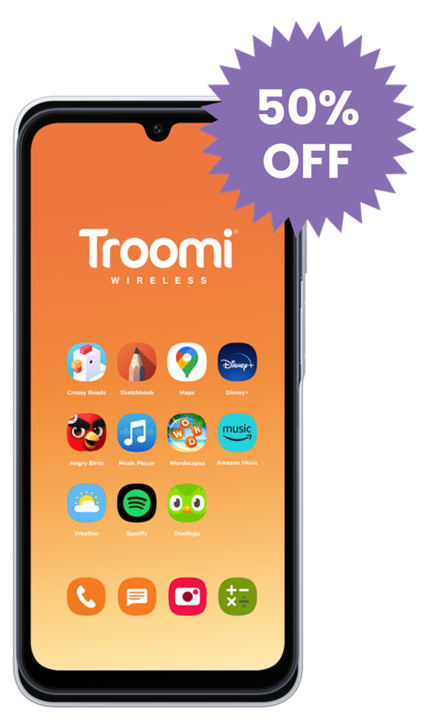When I broke a rule or made a mistake as a child, discipline was a little simpler than it is today. I had no phone to take away, social media didn’t exist, and I wasn’t in constant contact with my friends.
These days, phones have become a lifeline—even for kids! Because of this societal shift, it makes you wonder: is it okay to take your child’s phone away?
The Punishment Should Fit the Crime
When your child makes poor choices—or deliberately disobeys your rules—your initial inclination might be to take away their phone. It’s the perfect punishment, right? Your child can’t get enough of their phone!
But before you grab it from their grasp, consider whether or not the consequence matches their offense.
If your child didn’t come home in time for curfew, have them stay home and sit out on fun with their friends the following weekend. Did your child check out a TV show they weren’t supposed to see? Cut back their screen time allowance for a few days. When the consequence matches the rule broken, it helps your child better understand the effects of their actions.
When to Take Your Child’s Phone Away
Determining discipline isn’t easy, and only you can know how to handle your child’s consequences.
If you’re wondering when to take your child’s phone away, there are certainly some instances where it may be warranted:
- Any time your child shirks their responsibilities and opts for their cell phone instead. If homework, chores, and basic daily tasks—like making their bed or brushing their teeth—fall to the wayside because your child is stuck on their screen, it might be time to take it away.
- When your child regularly and intentionally ignores your important calls and texts. Answering parents’ calls and texts is non-negotiable!
- If your child is being deceitful or disrespectful about their cell phone use. Are they sneaking onto social media without your permission? Are they using their phone to access inappropriate content? Taking away their phone could provide some time for self-reflection and self-improvement.
Setting & Keeping Boundaries
As you give your child their first cell phone, take the opportunity to lay down some ground rules. Outlining your expectations with your child will eliminate any confusion when consequences follow certain actions.
For example, “if you don’t help clean up after dinner, you won’t be allowed to play video games tonight.” Or for your little ones, “if you leave your toys spread out all over the floor, you won’t be able to play with them tomorrow.”
To help you make your cell phone expectations—and consequences—clear, download this cell phone contract! You and your child can sit together to establish rules, discuss appropriate cell phone use, and determine logical consequences.
If your child plays a part in making the rules, they may feel like the consequences for breaking those rules are more fair!
Here are some additional tips to help you set and keep boundaries:
- Put timeframes in place when taking privileges—like a cell phone—away. Instead of using vague statements such as, “you’ll get your phone back when I trust you again,” commit to concrete deadlines like, “you can have your phone back in three days.”
- Help your child understand the steps they need to take to earn their cell phone back. This valuable lesson will teach them how to make their mistakes right—something that will serve them well throughout their life.
- Whether your child is behaving extraordinarily well or throwing a tantrum, don’t change your consequences for any reason. Being consistent will demonstrate to your child that you intend to follow through with their discipline, and no amount of good or bad behavior will change that!
Should You Take Your Child’s Phone Away?
Ultimately, it’s up to you to decide if taking away your child’s phone would be beneficial. Either way, here are a few things to consider before taking your child’s phone away:
- Aside from entertainment value, cell phones are equipped with trusty tools like flashlights, calculators, alarm clocks, and calendars. While you might be tempted to take away their phone to keep them from accessing the fun stuff, they’ll also be unable to use their phone’s more practical functions.
- Without their phone on them, you won’t be able to track your child’s location. This can come in handy for school pickups, hangouts with friends, and safety purposes.
- Not only do you lose your child’s location when you take their phone, but you lose the ability to call or text them. This could be a concern in the event of an emergency.
- When you take your child’s phone away, they could feel cut off from their social circle. They won’t be able to call or text their friends, classmates, or peers, which might lead to feelings of isolation.
When your child has a Troomi phone, you’ll have more flexibility when issuing consequences! Instead of taking away their phone, you can remove your child’s access to certain apps and features—only allowing them access to basic functions like talk and text. Plus, you can implement tight screen time limits or restrict their phone use to certain times of the day.
Click here to learn more about how Troomi can add flexibility to your family’s phone plan!


